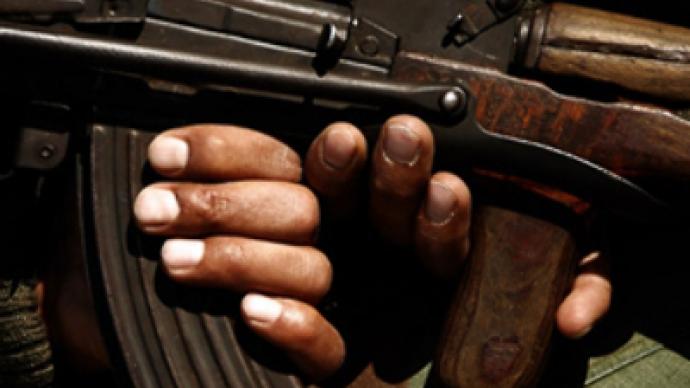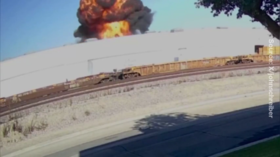Hamas – still strong after 3 years

Three years after its victory in Palestinian parliamentary elections, Hamas has emerged from its first conventional war with Israel physically battered but, for the time being at least, stronger politically.
Even its opponents in the Palestinian Authority headed by President Mahmoud Abbas acknowledge this. The punishment inflicted on Gaza by Israel in a war which caused extensive civilian casualties has enhanced Hamas’ popularity even among West Bankers affiliated with Abbas’ Fatah movement.
Hamas’s performance on the field of battle was highly unimpressive. It managed to kill no more than half a dozen Israeli soldiers while losing more than 500 of its own fighters – by Israel’s count. But the fact that it resisted at all and was still on its feet when the fighting ended has increased its stature as the embodiment of the Palestinian resistance.
However, as with Hezbollah in Lebanon, which has become far more restrained about challenging Israel after the pounding it took in the 2006 war, Hamas is expected to be more cautious about challenging Israel militarily in the future.
Still unclear is the movement’s ability to reconcile the ideology that it espouses – the destruction of Israel and the creation of an Islamic state in its place – with the political goal it has set for itself – recognition of its legitimacy by the international community which still regards it as a terrorist entity.
Hamas was uncertain about gaining such legitimacy when it achieved its surprise electoral victory on January 25, 2006, winning 76 seats in the 132-seat legislature while Fatah won only 43. Initially, Hamas was reluctant to name one of its own as prime minister, inviting Fatah to take the lead role while it settled for lower-profile positions. But it eventually took on the trappings of power and wielded it forcefully.
The secular Fatah movement, headed by Yasser Arafat, had led the Palestinian national movement for decades before Hamas was founded in 1987 in Gaza as an offshoot of the Muslim Brotherhood movement in Egypt. The Islamic movement gained popularity through an effective network of social services, such as soup kitchens, along with cultural, educational and religious institutions. These constituted an attractive alternative to the services provided by the Palestinian Authority.
Unlike the Muslim Brotherhood, which had come to renounce violence, Hamas’ founding covenant called for the obliteration of Israel by the sword. In pursuit of that objective, it established a military wing which launched attacks on Israeli targets, including suicide bombings.
Following the death of Arafat and the withdrawal of Israel from the Gaza Strip in 2005, Hamas made a bid for political power. Aware that its radical ideology was of limited appeal among the Palestinian constituency, Hamas pledged reform and good governance while focusing its campaign on corruption within the Palestinian Authority and its flawed social services.
Israel at first objected to the participation of Hamas in the elections, arguing that it was a terrorist organization. But Washington insisted on letting democracy run its course – an attitude perhaps encouraged by polls predicting a Fatah victory.
Tensions between Hamas and Fatah following the former’s victory led to periodic fighting between supporters but under the prodding of the Arab world the two movements formed a unity government in March, 2007. However, the violence continued and in June, 2007 Hamas seized exclusive control of Gaza in a bloody coup. Two virtual Palestinian states thus emerged, the West Bank controlled by the Fatah-backed Palestinian Authority and a Hamas-controlled Gaza Strip.
Hamas has governed Gaza more efficiently and with less corruption than the Palestinian Authority ever did. However, overconfidence born of its election victory, its successful coup and its ideological rhetoric, caused it to overplay its hand. Incessant rocket attacks against Israel finally provoked the recent attack.
Hamas has presumably learned the limitations of its power after the drubbing it took. But it is doubtful that its ultimate objectives have moderated. Given that Israel’s survival instincts have not moderated either, there are some Israeli commentators who have begun calling the recent confrontation “the First Gaza War” in anticipation of others yet to come.
Abraham Rabinovich for RT











